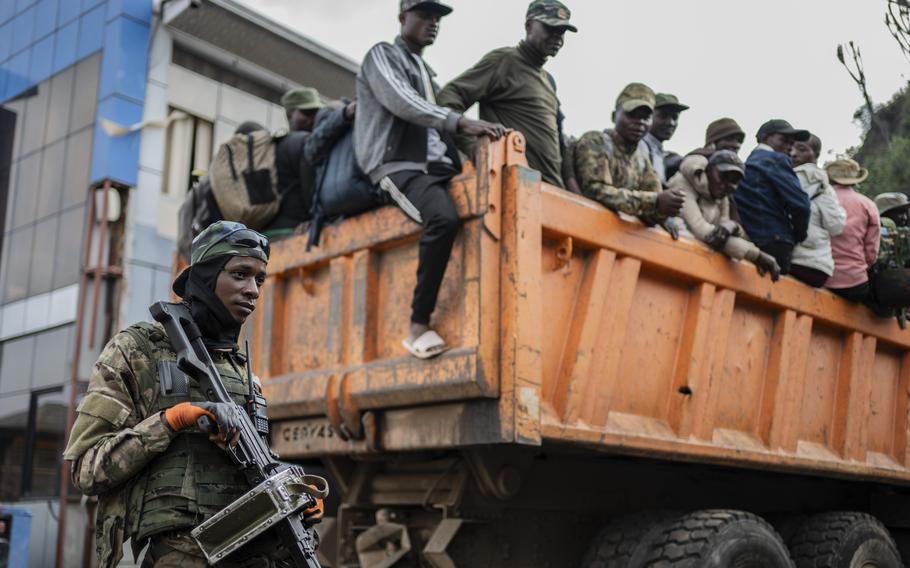
Former members of the Armed Forces of the Democratic Republic of Congo (FARDC) and police officers who allegedly surrendered to M23 rebels arrive in Goma, Congo, Sunday, Feb. 23, 2025. (Moses Sawasawa/AP)
DAKAR, Senegal — The Rwanda-backed rebel group M23 has denied involvement in a series of massacres in eastern Congo which were detailed in a report published by a rights group Wednesday.
Lawrence Kanyuka, spokesperson for the M23 military, called the Human Rights Watch report “fake and a falsification of reality” and accused the group of spreading “extremist propaganda” in a statement late Wednesday.
M23 is the most prominent of more than 100 armed groups fighting for control in Congo’s mineral-rich east.
Both M23 and the Congolese military have previously been accused of violence against civilians. Earlier this year, Congolese authorities accused M23 of extrajudicial killings during its seizure of major cities.
In the report, Human Rights Watch accused M23 of killing over 140 civilians as part of a military campaign against the Democratic Forces for the Liberation of Rwanda (FDLR), an armed group made up mostly of ethnic Hutu fighters.
Nearly 2 million Hutus from Rwanda fled to Congo after the 1994 Rwandan genocide that killed 800,000 Tutsis, moderate Hutus and others. Rwandan authorities have accused Hutus who fled of participating in the genocide, alleging that the Congolese army protected them.
Bertrand Bisimwa, an M23 leader, said on social platform X that the report was intended to influence the United Nations Security Council and was not based on evidence.
A separate report by another rights group, Amnesty International, also published Wednesday, found that both M23 and Congolese government-sponsored militias regularly committed mass atrocities and sexual violence against civilians.
With 7 million people displaced in Congo, the U.N. has called the conflict in eastern Congo “one of the most protracted, complex, serious humanitarian crises on Earth.”
The United States and others have been trying to achieve a permanent ceasefire since fighting between M23 and Congolese forces escalated in January.
The Congolese and Rwandan foreign ministers signed a peace deal at the White House in July. But M23 was not directly involved in the negotiations and said it could not abide by the terms of the agreement.
The final step was meant to be a separate deal between Congo and M23, facilitated by the Gulf state of Qatar, that would bring about a permanent ceasefire. However, a deadline for the deal was missed and there have been no public signs of major talks between Congo and M23 on the final terms.
The U.S. Bureau of African affairs, in a statement late Wednesday on X, called for an emergency meeting of the U.N. Security Council to discuss the “horrific abuses perpetrated against civilians, including by M23.”